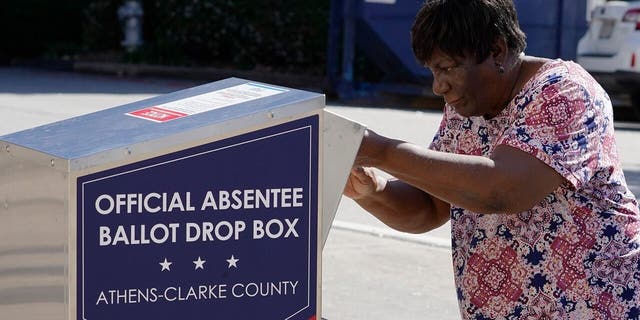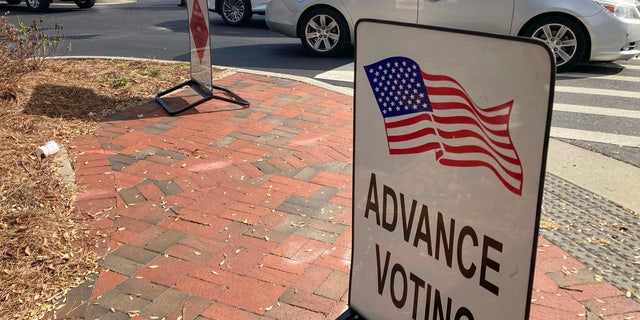
A Georgia state lawmaker introduced a bill to lower the threshold needed to avoid a runoff election after residents voted in a runoff in 2020 and 2022.
Georgia’s election laws currently require a candidate to earn 50% plus one vote to win an election outright and avoid a runoff. But the legislation proposed this week would lower the threshold to 45%.
“We have too many elections here in Georgia,” state Rep. Saira Draper, D, told FOX 5 Atlanta.
“Basically what it accounts for is that so-called spoiler candidate—that candidate that is going to get one or two percent of the vote that doesn’t represent the values of the people—but again, it prevents any one candidate from getting 50%,” Draper continued.
GEORGIA DEMOCRAT SHREDDED FOR SMEARING JUSTICE THOMAS AS AN ‘UNCLE TOM:’ ‘DISGUSTING’

A Georgia state lawmaker introduced a bill to lower the threshold needed to avoid a runoff election after residents voted in a runoff in 2020 and 2022.
Georgia has seen a runoff election in the last two elections for U.S. Senate seats.
In 2020, Republican David Perdue faced off against Democrat Jon Ossoff and Republican Kelly Loeffler went up against Democrat Raphael Warnock. Ossoff and Warnock ultimately won their races following a runoff two months later.
And in 2022, Warnock was challenged for his Senate seat by Republican Herschel Walker, with Warnock winning re-election after a runoff.
In both cases, a Libertarian Party candidate earned 2% of the vote in the general election, which helped keep the Republican and Democrat candidates from surpassing the 50% threshold.
“We looked at all the statewide runoff elections that stemmed from general elections over the last 15 years and if this 45% threshold had been in place then, we wouldn’t have seen any of those runoff elections,” Draper said.

Georgia’s election laws require a candidate to earn 50% plus one vote to win an election outright and avoid a runoff. (AP Photo/John Bazemore)
Georgia runoff elections bring in fewer voters than in the general elections and, according to researchers from Kennesaw State University, the U.S. Senate runoffs following the 2020 general election cost $75 million statewide.
And Draper says a runoff does not change the outcome of a race in most cases. However, one exception is the 2020 election between Perdue and Ossoff. Then-Sen. Perdue had earned more votes in the general election, garnering 49.7% of the vote, but lost to Ossoff in the runoff election on Jan. 5, 2021.
When asked about how her bill would have changed the outcome of the election between Perdue and Ossoff, Draper said her proposal would not favor Republicans or Democrats.
“My belief is that good policy isn’t partisan,” Draper said. “This is a good policy.”
She acknowledged that people may oppose the bill because a candidate only earning 45% does not represent a majority of voters. Libertarian Chase Oliver, who ran for Senate in the 2022 election, said in an interview in October that he does not believe a candidate should represent the state without even earning the majority of the vote.

The legislation proposed this week would lower the threshold needed to avoid a runoff to 45%. (AP )
CLICK HERE TO GET THE FOX NEWS APP
But Draper pushes back on this argument by noting that fewer people vote in a runoff.
“When we have runoffs, we always see a decline—a huge decline—in participation. So, even in runoffs, you may get a 50% threshold, but it’s a lower raw number of votes than you had in that general election, and I don’t think that necessarily represents the will of the people,” she said.
The bill has been assigned to a committee and has no Republican co-sponsors. It is unclear whether the proposal will receive a hearing.







